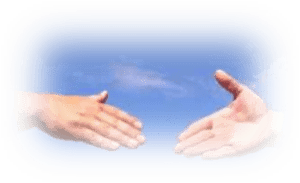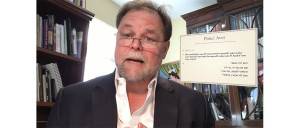|
On Tuesday, February 13th, Deah Barakat, Yusor Mohammed Abu Salha, and Razan Mohammed Abu Salha were shot to death by a man living next door to them at an apartment complex in Chapel Hill, North Carolina. Because they were observant Muslims and the man who murdered them had expressed what he called anti-theist views against believers of all faiths, there is an open question as to what motivated this murderer to pull the trigger and whether the killing was an act against the faith professed by these three students – whether they died because they were Muslims in America. For me, however, as I learn more about the incredible acts of devotion, kindness, and service to humanity performed by newly wed Deah and Yusor, and Yusor’s younger sister Razan, I am moved above all by how being Muslims in America shaped how they lived.
Deah Barakat was a dental student who, among other projects, raised money for and led a mission to Turkey in order to provide urgent medical procedures and preventative oral care for Syrians whose lives had been ripped apart by war and turmoil. His work on behalf of those in need also informed his messages on behalf of seeking peace for all without exception. While the views of the world and its conflicts he expressed were in solidarity with Palestinians and other Muslims, he explicitly spoke out against violence done against Jews and against anyone who thought killing was the answer. He was a supporter of interfaith programming, including participation in sharing Ramadan with Beth Meyer Synagogue in Chapel Hill.
What would be the last months of his life was a celebration of his love for his wife Yusor, a Muslim woman and fellow dental student. Yusor spoke powerfully about the blessing of being a Muslim in America on this StoryCorp recording and posted on social media about the practice of wearing the hijab, a full head covering, from the perspective of women’s empowerment. Her sister, Razan, was an award winning artist who, along with Deah’s brother Farris, was instrumental in helping to create an incredible video that affirmed the forward looking and hopeful mindset of Muslim students at North Carolina State University in a way that also showed the playfulness and individuality of a community often treated as monolithic by others.
Deah, Yusor and Razan spent a significant part of their lives responding to a burning question read this week in the Book of Exodus (Mishpatim). This question arises in an unexpected place, an enumeration of laws of civil behavior that is explicitly concerned with not favoring any party in a dispute or legal proceeding. And yet in the midst of cases involving oxen being gored or goring others, and the laws of lending to those in need, the text breaks out of its legalistic tone and demands to know what would happen if a lender insisted on taking the only coat of a poor person as collateral and did not make sure to return it before the sun set.
“This is his only cloak, in what will he sleep?” If a person has no cloak, no wealth, no protection either from nature or from malice, no one to care about his or her well-being —- “In what will they sleep?” And in many ways it was questions such as this that led Deah Barakat to dedicate his talents and his time to trying to alleviate suffering in Syria seeing what he could provide as a dentist as his version of the cloak. It is the revelation that G*d demands our attention for each person’s well-being that drives the kind of reflection on faith that inspired Yusor and Razan to articulate so powerfully how their beloved traditions must lead to understanding between different people and be a source of communal responsibility.
For me, this bittersweet opportunity to learn more about these three remarkable people, “three winners,” as those dear to them have chosen to name them, has made me think of Matthew Eisenfeld and Sara Duker, may their memories be a blessing, dear friends murdered nineteen years ago by Hamas terrorists practicing a faith that is so unlike the understanding of Islam that these three students professed . Unlike the killers of Matt and Sara, it is not clear that the man who murdered Deah, Yusor, and Razan hated everyone like them. However, like Matt and Sara it is clear that the murderer’s cruel, unfathomable act of violence took from the world people whose incredible faith, talents and commitments to do good would have brought so much more compassionate insight into a world so in need of love. I imagine them having much to learn from each other should they meet beyond this world.
A beautiful commentary called the Kli Yakar (“Precious Vessel”) reads the question “In what will he sleep?” also as a reference to the tradition that when a person dies their soul is cloaked in the good deeds they have done on behalf of others. If a person refrains from helping someone in this world, “In what will that person sleep” in the next world? Deah Barakat, Yusor Mohammed Abu Salha, and Razan Mohammed Abu Salha are, I believe, among those clothed now in the deeds of the righteous. Yet we are poorer for not having the new answers that they would have provided to G*d’s burning questions.
May G*d, to whom we call by many names, provide for these witnesses an abode in Paradise, may their memories be a blessing to all they touched and the entire world.
Shabbat Shalom,
Rabbi Michael
|


